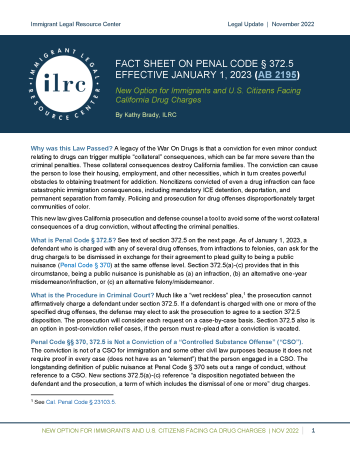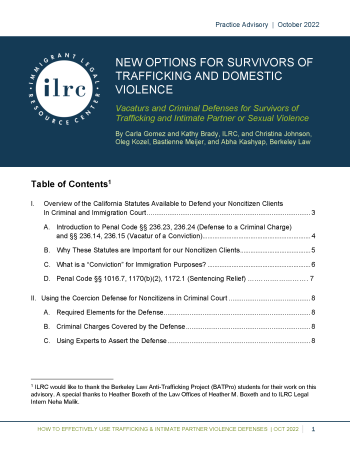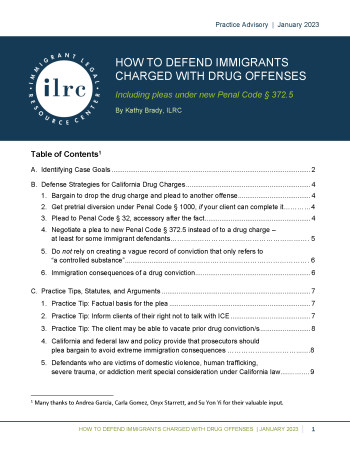Crimes and Non-LPR Cancellation
In this webinar, we will explore the various ways a criminal incident can impact an application for non-LPR cancellation. We will look at the criminal conviction bars, good moral character, the stop-time rule, and discretion. This is an opportunity...
Analyzing a Crim/Imm Case
Level: Beginner / Intermediate In this webinar, attendees will receive a comprehensive, top-level review of how to analyze an immigration case when criminal history is present. We will provide a top-level overview of the grounds of inadmissibility...



Crimes
The crossover between immigration and criminal law is one of the most complex and technical areas of law. The Immigrant Legal Resource Center (ILRC) is recognized as a national leader in criminal immigration law and immigration consequences of crimes. We provide critical support to immigration attorneys and criminal defenders through analysis, policy work, trainings, technical assistance, and developing and disseminating best practices.
Popular Resources
California Quick Reference Chart
California Notes
A Guide for Immigration Advocates
A Guide for Immigration Advocates is a practical and essential tool for beginning immigration attorneys, immigration law firms employing paralegals, DOJ accredited representatives, and nonprofit community-based organizations. The Guide is unique...